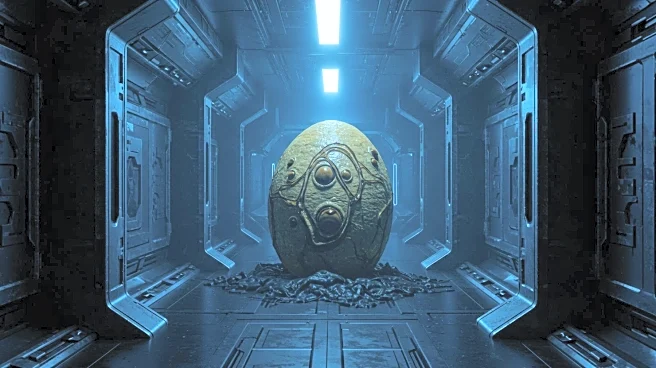What's Happening?
Noah Hawley, the showrunner of FX's TV series Alien: Earth, has revealed insights into Ridley Scott's original ending idea for the iconic sci-fi horror film Alien. Scott initially envisioned the xenomorph killing Ripley and mimicking her voice before heading to Earth, a concept he ultimately discarded. Hawley finds this idea still terrifying and has incorporated new alien species in Alien: Earth, which is set just before the events of the original Alien film. The series explores themes of corporate governance and hybrid humanoid robots, maintaining the franchise's sci-fi horror roots.
Why It's Important?
The revelation of Scott's original ending concept highlights the creative evolution of the Alien franchise, which has significantly influenced sci-fi horror. Hawley's adaptation, Alien: Earth, introduces new elements and species, potentially expanding the franchise's narrative and thematic scope. This development may attract both long-time fans and new audiences, impacting the series' reception and future storytelling directions. The exploration of corporate and technological themes in Alien: Earth also reflects contemporary societal concerns, resonating with viewers interested in speculative fiction.
What's Next?
Alien: Earth is set to continue exploring the franchise's themes, with potential for further expansion of the Alien universe. The series may delve deeper into the implications of hybrid humanoid robots and corporate governance, offering new narrative possibilities. Fans can anticipate more revelations about the xenomorphs and other alien species, potentially influencing future adaptations or spin-offs. The show's reception could guide the direction of subsequent projects within the franchise.
Beyond the Headlines
The concept of interspecies mimicry and hybridization in Alien: Earth raises ethical and philosophical questions about identity and consciousness. These themes may provoke discussions on the nature of humanity and the ethical implications of technological advancements. The series' portrayal of corporate control and synthetic life forms could also spark debates on the future of governance and artificial intelligence.










